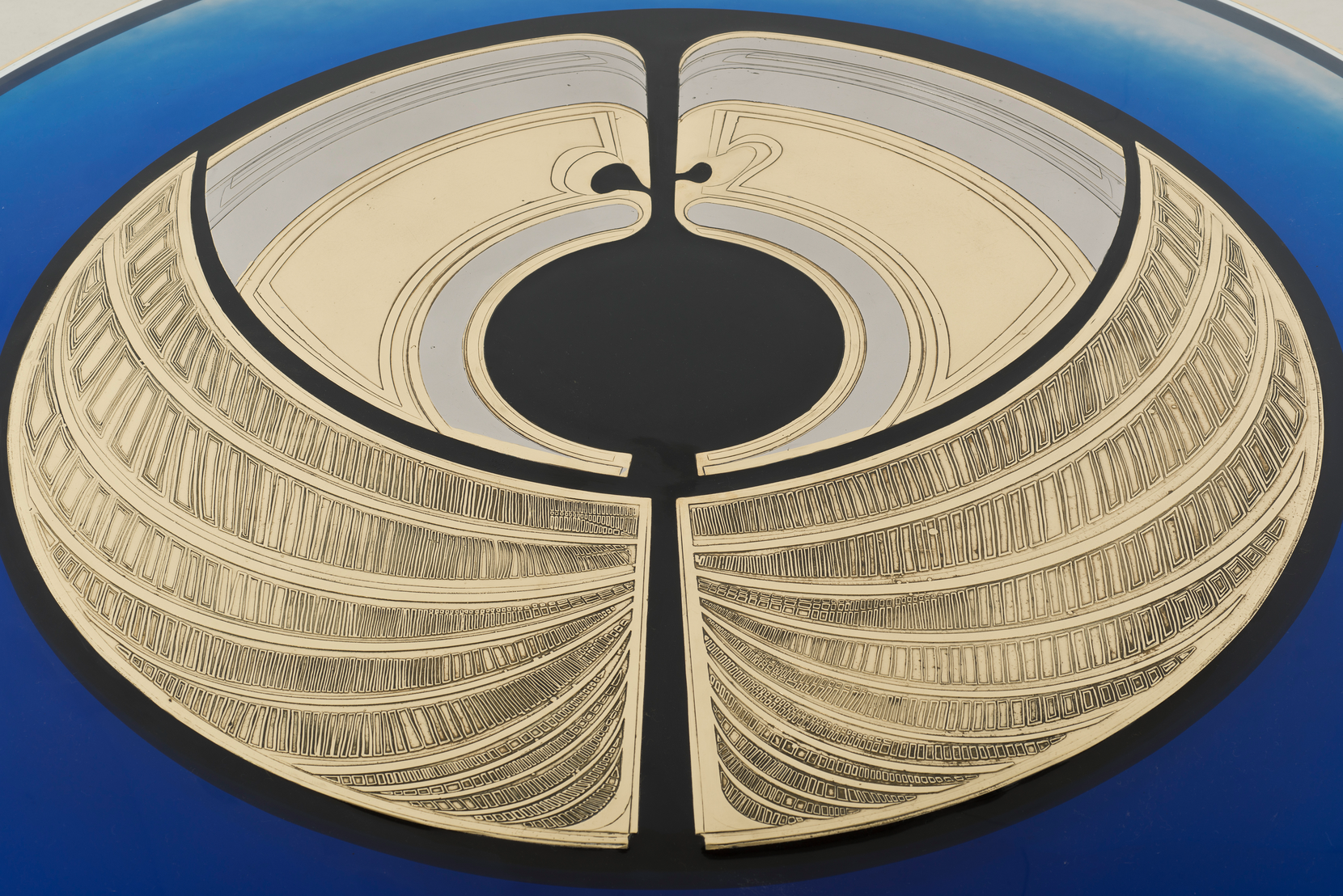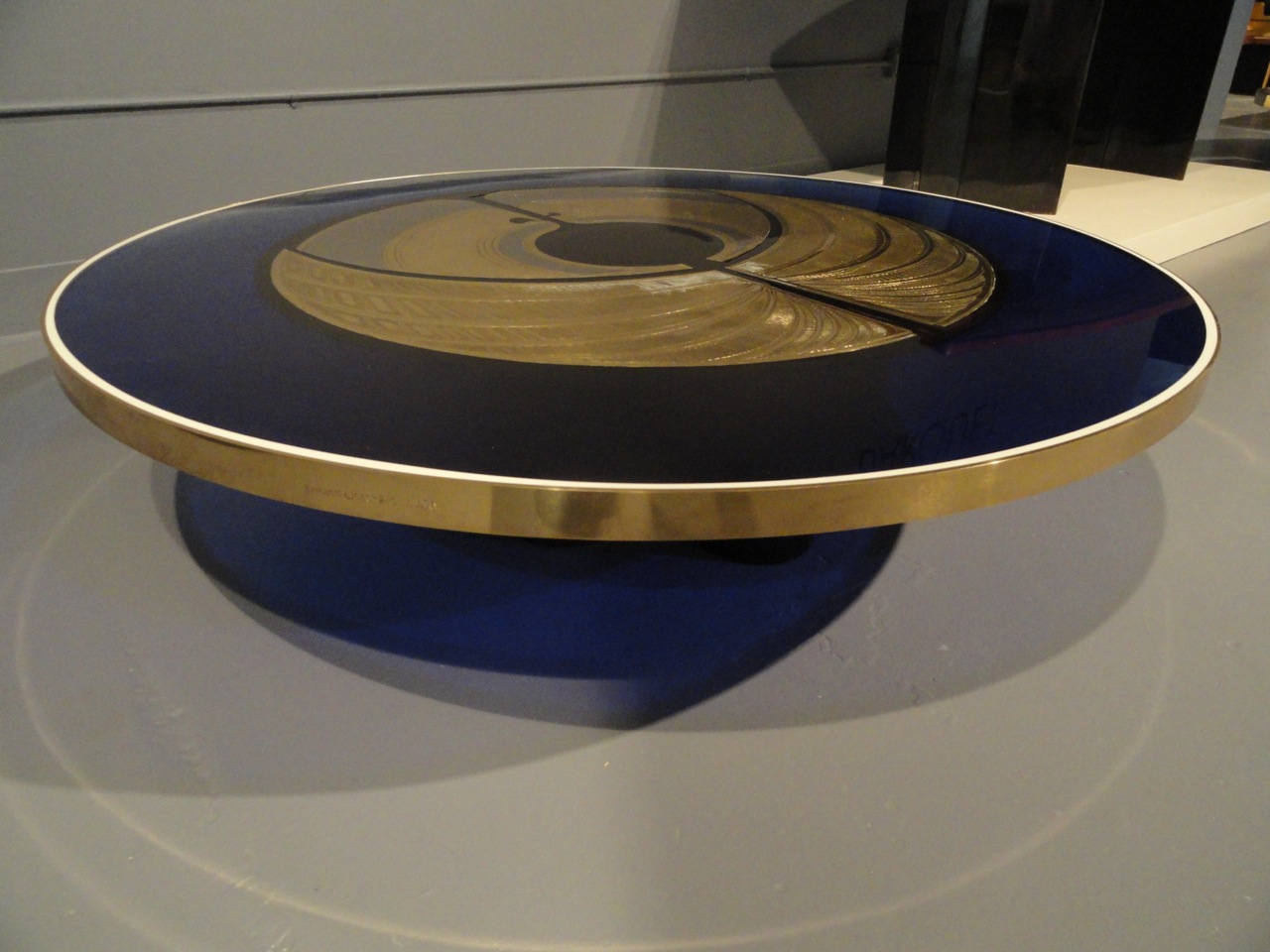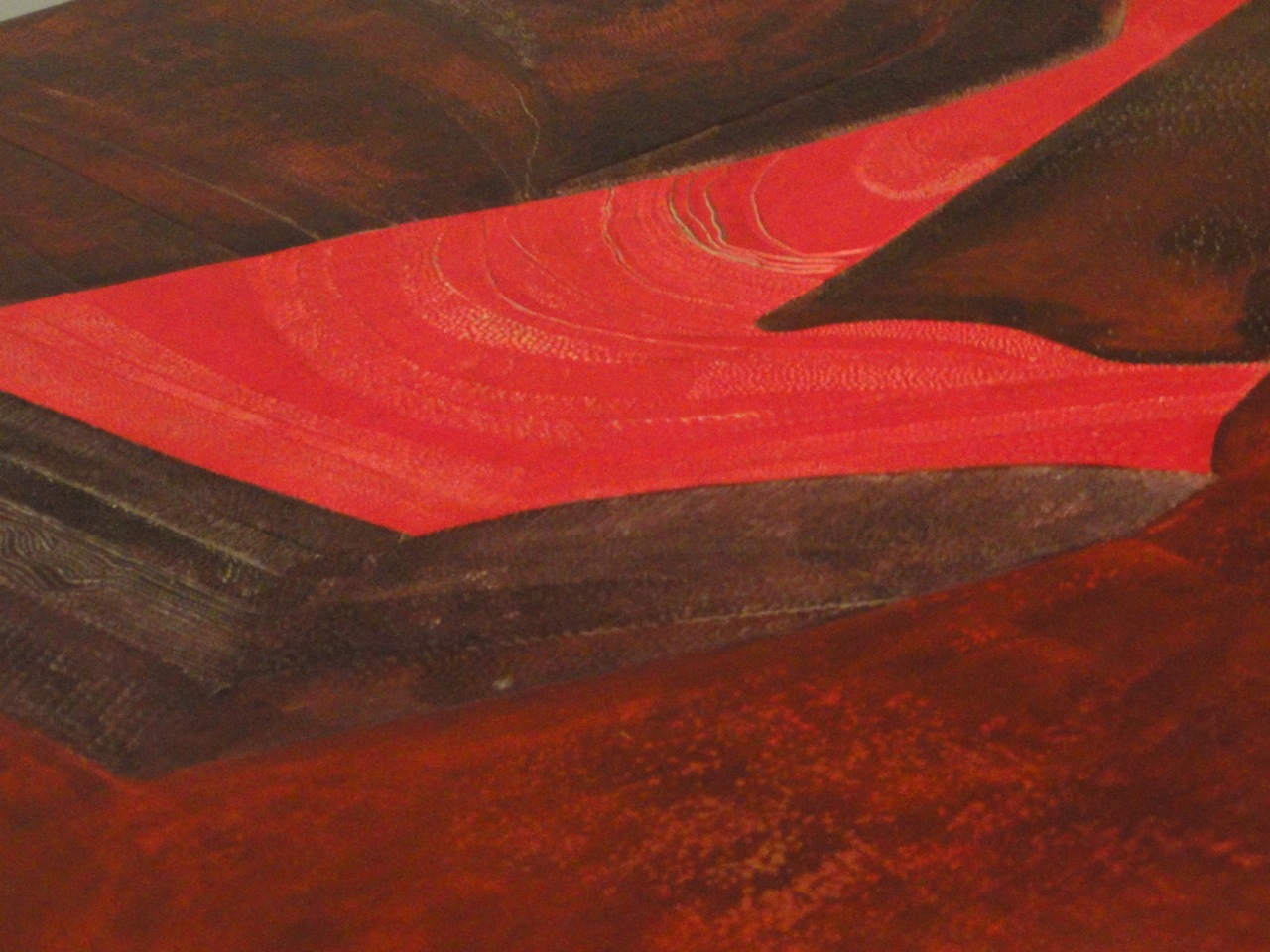Currently on view at Sebastian + Barquet is a stunning collection of tables from 1973-1983 by Armand Jonckers, the Belgian furniture designer. The seven works on view are from Jonckers own personal collection and indeed worth seeing in person simply for the intricate detail involved in the combining of etched brass, resin and leather to create these beautiful tables. Because there is very limited information about Jonckers work that has been published in the US, I am including excerpts from an interview Number 33, October, November 2012, ‘Juliette and Victor‘, a French magazine. “Armand Jonckers is an unclassifiable artist. Sculptor, antiquarian buff about mineralogy and mostly decorator, he willingly defines himself as handyman. When you enter Armand Jonckers’ workshop, it is quite difficult to define what he has created, or even, identify what is in front of you. Between workshop and depository, the place is mainly a shelter for thousands of finds gleaned over time, rows in aisles of shelves rise to the ceiling, to serve one day as freaky new creations. Among antique items dating mainly from 1930’s-1960’s, classified by kind, or by material type, you can find old giant pieces of wood taken from industrial sites which stand next to a collection of glassware, huge ostrich eggs and quartz pieces: the raw material of an infinity of possible projects.
Unique “Lola” low table 1983, clear colored and opaque resins, acid-etch and engraved brass, 10″ h x 32″ w x 34″ d
Detail of “Lola” table
Unique low table 1980, clear and colored resins, engraved and acid-etched brass, painted iron, 13 1/2″ h x 56″ w x 56″ d
Detail of underside of low table
Born in 1939 to a Belgian father and a French mother, Jonckers studied sculpture at the Lausanne’s school of fine arts between 1957 and 1962. He set up a workshop upon graduation near a Beaujolais castle where he used to spend every summer with his parents. He then became a middle man between Belgium and Lyonnais antiquarians, specializing in black mourning furniture created for high society, made as symbols of their frustration in respect of the revolution. This allowed him to open a shop in the Louise’s gallery that he kept until the eighties, La Calade, a place that made him known to the general and art public. Tireless and self-educated, he became interested in mineralogy, and passionate about a little unknown town in Germany called Idar-Oberstein. The town is famous internationally for its jewelers that have specialized since the IX century in gemstone work. Workers from the town have been making crowns for all major European dynasties of the X and XI century. In 1965, an antiquarian, (well known in the art world for having some of the best pieces), befriended Jonckers and introduced him to these sensitive works. After some purchases made at random, Jonckers gained a passion for gems and travelled worldwide for several years looking for mines, searching for the most uncommon gems.
Unique low table 1979, engraved and acid-etched brass, brass. 12 1/2″ h x 59 1/2″ diameter
Detail of two part low brass table
Around the same time, Jonckers invested himself in his first decorating projects for individuals and shops. One of his best projects, the club Le fashion, became very well known to the elite at this time. In the clothing shop Lollipop he created a maze of podiums where none of the clothes were displayed but hung from the ceiling. The clothing would appear when pulling on cables. The seventies and eighties were a special period in terms of the stunning creations he produced during this time and projects in Belgium were abundant. He had the opportunity to work with the designer DeCapitani who always loved challenges and between 1978 and 1983 he collaborated with him on the decoration of two Saudi Arabian palaces. He then began designing furniture with a predilection for recycling objects and old materials or old art deco ironwork. Jonckers liked the idea of transmitting craftsmanship which had been little by little disappearing over time. His style is referred to as baroque with a touch of humor. He prefers working with wood over metal saying that it is easier to sculpt. Jonckers is said to be the opposite of Brancusi (his most admired artist) who spent hours and hours polishing the same piece and works in a much faster style.
Unique dining table, 1980. hand-tooled and painted leather over wood, oxidized copper. 30″ h x 43 1/2″ w x 67″ d
Detail of hand tooled and painted leather top dining table
Unique “two-face” low table 1978. colored and opaque resins, painted wood. 12″ h x 34 1/2″ x 34 1/2″ d
Detail of two face low table translucent resin edge
Jonckers has never duplicated the same work twice and works mostly by commission although he has not had a formal gallery show. Some recent projects include making a bar for Portuguese wine bar from a colored enamel sheet ordered from a really old Alsatian enameling and disassembling factory engine coils in which you find different copper colors to create other coffee tables.” The private collection being shown at Sebastian and Barquet currently are part of a greater body of work created with a specific focus on engraved and etched brass, with some tables also combining resin and other metals and found objects. For the past ten plus years, his two sons and his daughter have also worked with him in shop in Ixelles, Belgium creating these intriguingly beautiful pieces. A special thank you to Tara DeWitt at Sebastian + Barquet for sharing Armand Jonckers work with The Gilded Owl! The collection is on view through March 18th at 601 West 26th Street Suite 300.
Unique low table 1973. colored and opaque resins, acid-etched and engraved brass, brass and copper. 9″ h x 53″ w x 37 1/2″ d
Underside of low table copper and brass legs















